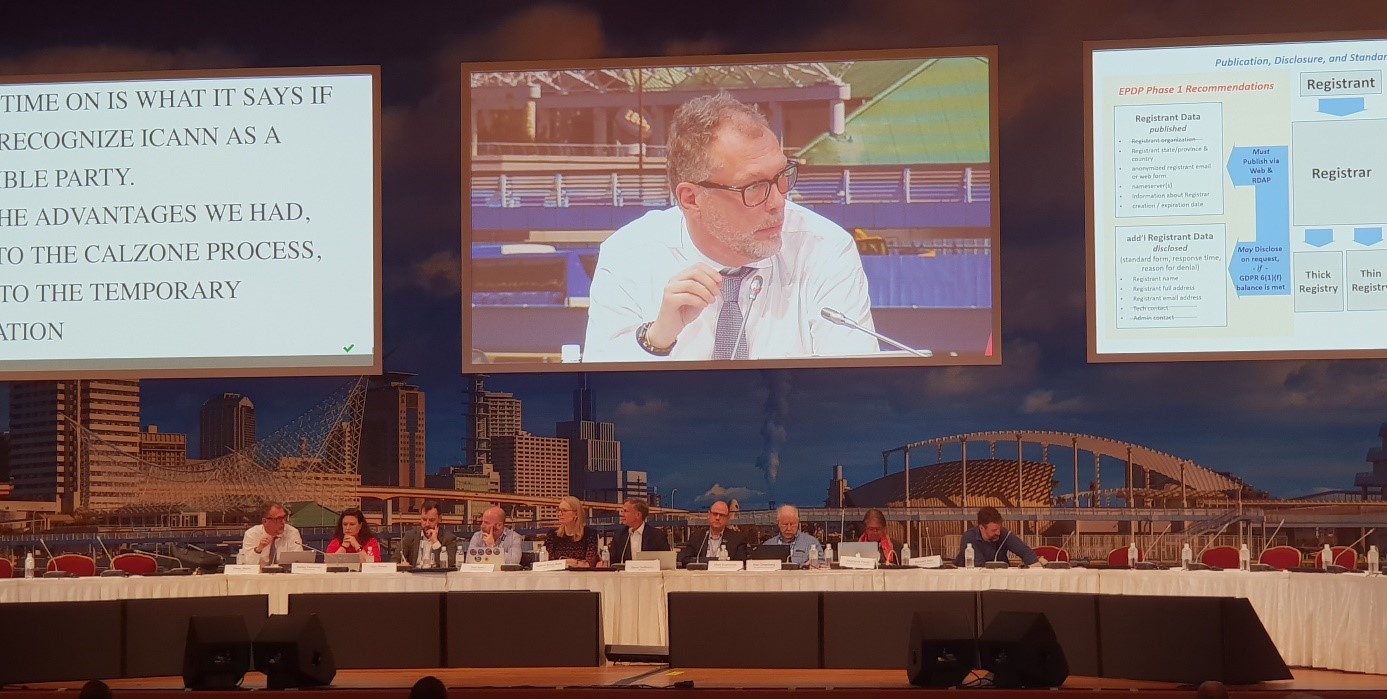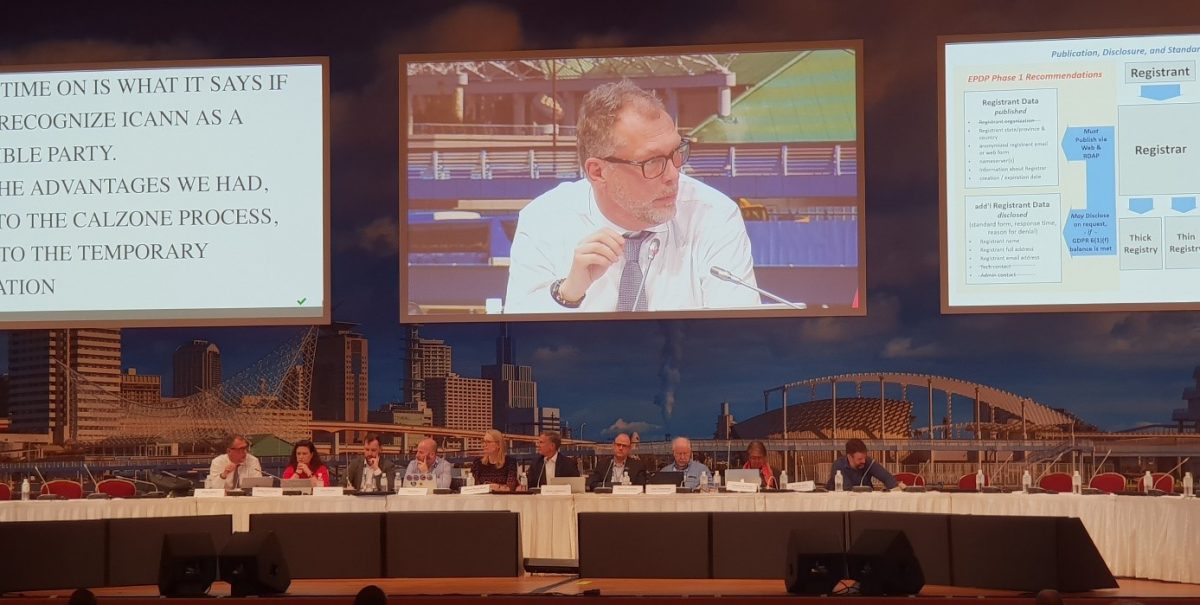A month ago, ICANN held its first annual meeting with the Internet community in Kobe, Japan. At this summit, ICANN presented the major projects of the year and those of the coming years. Let’s look back at the main topics.
The implicitely constraint of the GDPR
While in May 2018, Europe adopted ambitious legislation to protect users’ personal data, ICANN imposed a regulatory framework on domain name players to bring the industry into line with the constraints of the GDPR.
In the absence of consensus, this framework was imposed when the GDPR came into force on May 25, 2018. It contains non-consensual provisions such as no longer publishing in the registry’s registration directory service, which currently operates via the Whois protocol, data that can be assimilated to personal data for contacts associated with domain names: registrant contacts, administrative contacts, technical contacts. Exit therefore the names, first names, postal addresses, telephone numbers and anonymization of email addresses or hidding via a contact form.
However, as provided for in the Bylaws, the rules governing the role and operation of ICANN, non-consensual rules may not be imposed beyond one year. ICANN therefore had the May 2019 deadline in mind throughout the Kobe meeting.
To build on this, last year ICANN initiated an expedited policy development process (ePDP) whose delicate mission was to develop consensus rules to replace the temporary provisions currently in place.
Shortly before ICANN64, this working group, in which Nameshield participates, submitted its proposals to the GNSO, the ICANN body that manages policy development for generic domain names. This report, which is currently open for comments, is expected to result in a final framework that will be submitted to the ICANN Board in early May for voting and promulgation.
The proposals outline a target date for implementation by 29 February 2020. ICANN has therefore focused its efforts on managing the transition period between May 2019 and this still distant deadline of February 2020. The prevailing approach is rather pragmatic as it consists in keeping the provisions currently in place such as the masking of personal data in the Whois until all the new provisions can be implemented by actors such as registrars and registries by the above-mentioned deadline.
Access to hidden data subject to tensions
Launched in 2012 during the last round of openings of new domain name extensions but quickly relegated to the boxes, the RDAP (Registration Data Access Protocol), an alternative to the aging Whois protocol, has resurfaced with the GDPR because of its modularity, which allows, unlike Whois, to filter access to certain data according to the user’s profile.
ICANN confirmed in Kobe that this protocol will be widely deployed by this summer. First, this protocol will coexist alongside the Whois protocol. Registrars will therefore provide access to domain name data through both protocols.
The stakeholders present at ICANN64 also learnt about the project submitted by a technical study group mandated by ICANN on the operational way envisaged through the RDAP protocol for access to hidden domain name data. It has been the subject of tensions because it is not the result of a consensual process and ICANN suggested it could play a central role in collecting all requests to validate their authorization, with authentication of requests being carried out upstream by agents accredited by data protection authorities. This topic is also part of the new mission of the Policy Development Working Group (ePDP) in the coming months. Things can therefore evolve on this subject in the future.

A multi-year strategic plan
At ICANN64, ICANN also presented progress on the implementation of a strategic operating plan for the organization for the period 2021-2025.
The adoption of a five-year plan is new for this organization, which has always operated on an annual basis. This plan must determine the priorities for the coming years, which is also a novelty in a context where multiple projects have always been carried out simultaneously without any real prioritization.
We already know that DNS security is one of the major issues of the coming period. Among the priorities identified are the reinforced fight against malware and the increased security of the DNS, in particular through a faster deployment of DNSSEC.
For the next round of new domain names extensions openings also mentioned, ICANN has also indicated that it will take into account the lessons learned from the previous round. Among them, new extensions are ten times more targeted than historical generic extensions (like .COM,.NET,.ORG,.BIZ,.INFO) by malicious practices such as typosquatting and dotsquatting on which phishing and pharming practices proliferate.
Feel free to contact your Nameshield consultant, who is very knowledgeable on all these subjects.

